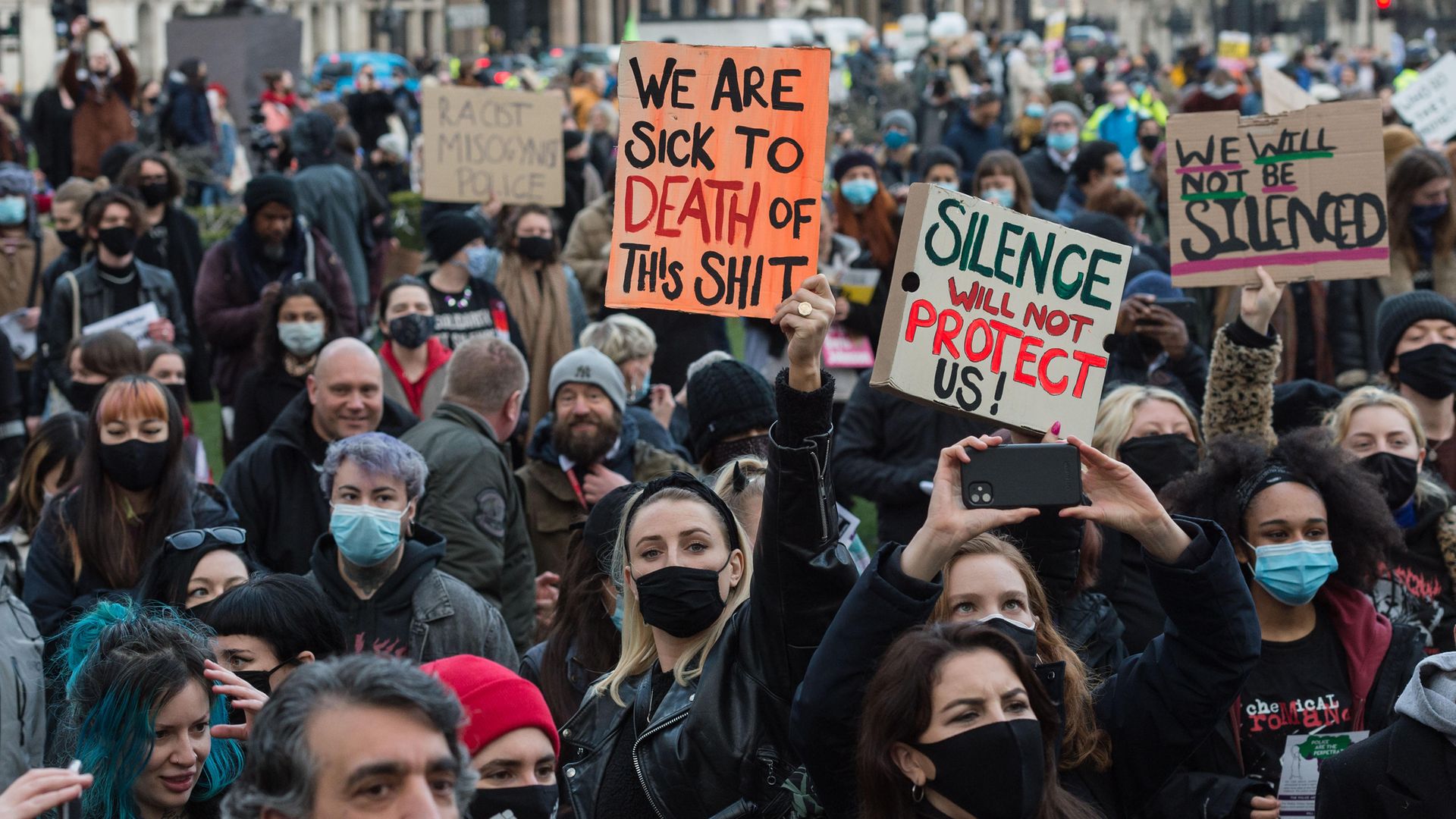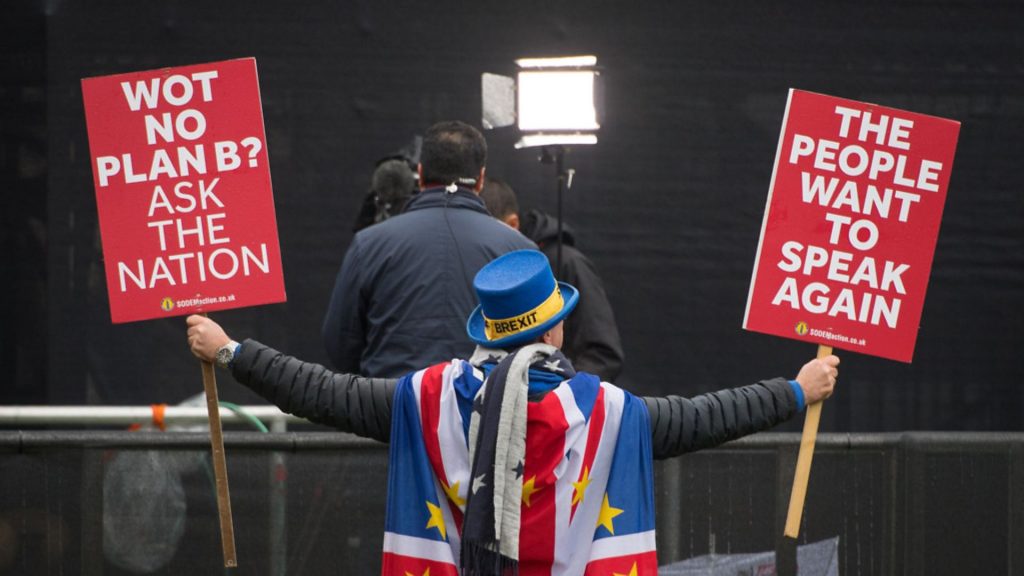
Priti Patel’s clampdown on demonstrators is part of a chilling pattern of government moves to silence dissent
Priti Patel is clamping down on the right to protest. She won’t admit it, of course. When she presented her new police, crime, sentencing and courts bill to the Commons this week, she insisted it had no impact at all on peaceful demonstrations. Tory MPs rose one after another to defend her, in many cases reading out the script written for them in the parliamentary party briefing line-by-line.
But the reality is very different. The bill aims quite literally to silence protestors. Section 54 allows the police to impose restrictions on protests they believe might make too much noise. The test is set extremely low. It is passed if the protest “may result in serious disruption to the activities of an organisation” or if police suspect that a single passer-by would be caused “serious unease, alarm or distress”.
Patel has given herself the power to unilaterally change the meaning of the term “serious disruption” through the use of statutory instruments, effectively bypassing parliament and redefining the threshold at which protests are restricted whenever she wants.
It was telling that not one defender of the bill on the Tory benches could bring themselves to defend these provisions. It was as if they weren’t there. Instead, they insisted they needed new powers to deal with protestors who block roads or stop trains. But they already had those powers. This new bill gives them a different power: the power to silence. The power to ensure that demonstrators cannot legally make their voice heard.
It goes without saying that the Remain marches which took place in central London would fall foul of this legislation. The noise could have “a relevant impact on persons in the vicinity of the procession” and the rallies outside parliament could “result in serious disruption to the activities of an organisation”.
There are also specific provisions in the law to deal with Steve Bray, the Remain campaigner who has stood alone outside parliament for years. Section 60 of the bill imposes conditions on “one person protests” which seem reverse-engineered to end his vigil.
But Remainers aren’t the main target. Black Lives Matter and Extinction Rebellion are. The maximum sentence on defacing a statue – indeed any object at all with a “commemorative purpose” – is now ten years in jail. The powers handed to police will be used to target young climate change activists.
Time will pass though, and then new groups will be targeted. Home secretaries legislate with particular organisations in mind, but the organisation fades and the legislation remains. In reality, the bill is a no-holds-barred assault on the right of peaceful protest.
It is not an isolated act. It is part of a pattern. The government will soon take action against judicial review – the ability of an individual to challenge the legality of ministers’ decisions in court. Immigrants rights groups have used this kind of litigation to prevent deportations. Now they will be brought to heel.
Patel has launched several broadsides against judges and lawyers, branding them “do-gooders” and “leftie lawyers”. The Lord Chief Justice described it as a “general attack on the legal profession” which “undermines the rule of law”.

The same approach is taken with the civil service. Anyone who stood up to ministers, or whose departure might take the heat off a member of the government, is jettisoned. They include the permanent secretaries at the Department of Education, the Cabinet Office, the Home Office, the Foreign Office and the Ministry of Justice.
When Boris Johnson was told by his independent advisor that Patel had broken the ministerial code over bullying, it was the independent investigator who quit his job rather than the home secretary. And in fact Johnson is himself in breach of the code for his repeated refusals to correct the record after misleading the Commons. But that no longer applies. The ministerial code is now almost completely ignored.
Last week, the BBC took to the decision to remove the Mash Report – one of the very few comedy current affairs programmes which has the bravery to take on the government – from the air. This appears to be a result of BBC director general Tim Davie’s drive to “renew our commitment to impartiality” – in reality an agenda forced on him by government MPs and ministers to remove liberal opinion.
These all seem disparate and unrelated events – some at the level of street protest or comedy programming, some at the highest levels of the judiciary or civil service. But in fact they are all the same event. They are the behaviour of a government which aims to destroy any part of society or the constitutional framework which can hold its power to account. It is the silencing of dissent, the censorship of critical voices. This is an executive which intends to crush any opposition to its will.
What do you think? Have your say on this and more by emailing letters@theneweuropean.co.uk










